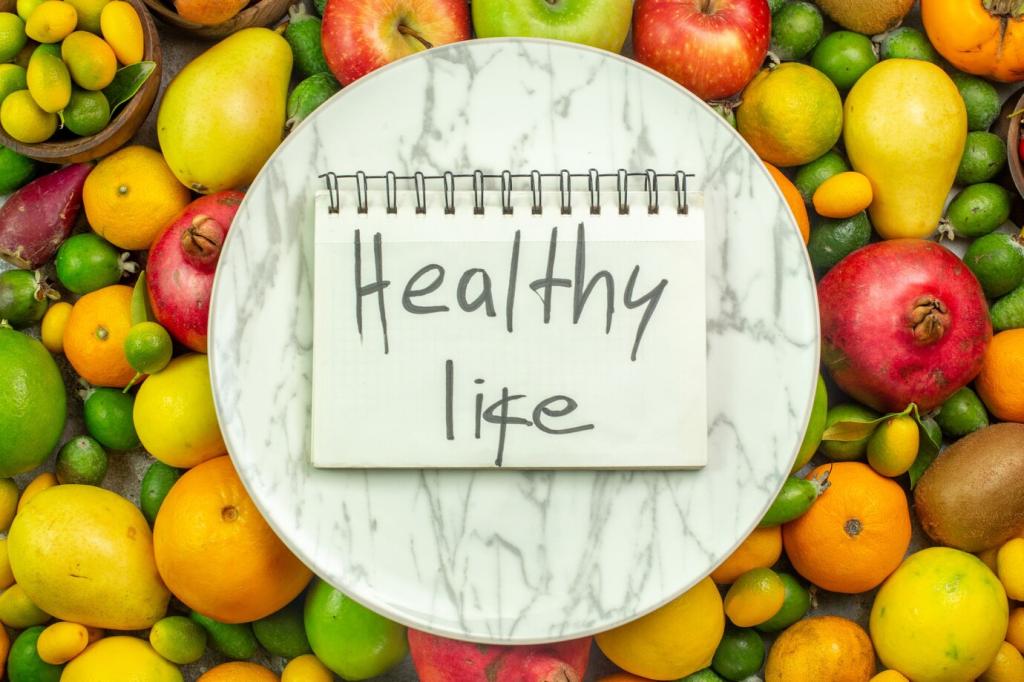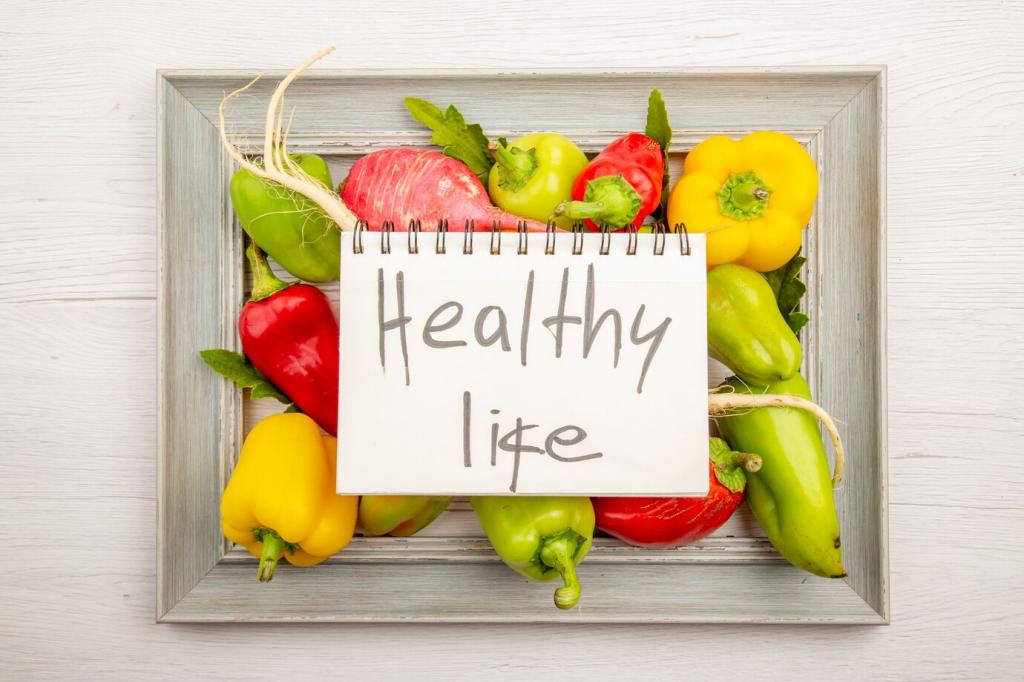Build a Performance Plate
Start with a palm-sized portion of protein, two cupped hands of colorful carbs around tough sessions, and a thumb of healthy fats. This visual approach scales easily, prevents overthinking, and keeps you fueled while respecting hunger cues. Try it for a week, then adjust based on energy.
Build a Performance Plate
Carbs are your training spark plug. Choose oats, rice, potatoes, and fruits, layering in colorful vegetables for antioxidants that tame exercise-induced stress. Aim for brighter plates on heavier training days. Share your favorite pre-session carb combo with the community for fresh ideas and inspiration.



